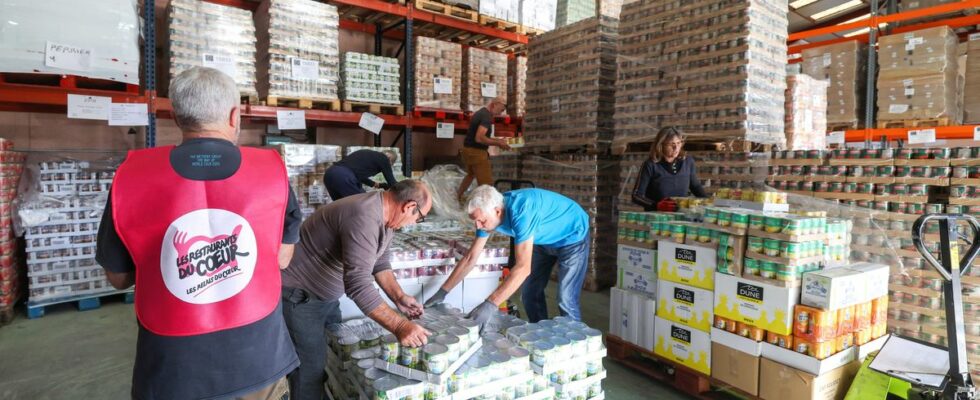Will they still have as many volunteers after the pension reform? While the big day of mobilization against the project will take place this Thursday, debates between promoters and opponents of the new law are raging. All subjects are covered: economy, health, justice… But certain sections of society, less prominent in the news, are also concerned by the future of future sixties.
The associative world, in particular, wonders about the consequences of an extension of the contribution period, because it could, too, suffer from this reform. In fact, in France, it is estimated that 22 million, the number of volunteers or members who sustain 1.5 million associations. And among them, between 33 and 35% are retirees. A very important part of the workforce in short.
One out of two association leaders is retired
Seniors play a strategic role here. According to a report of the Pensions Orientation Committee dated 2013, one out of two association leaders is a retiree. A figure that is still relevant according to Elisabeth Pascaud, administrator of the France Bénévolat association: “It’s mainly because they have more time than the youngest,” she explains. Yet increasingly committed, they can often devote only one or two hours a week, against one to several half-days for retirees. A report by the association also confirms that the very regular volunteers, around two million people, are often retirees who make up the “skeleton of the associations”.
Data supported by Simon Cottin-Marx, sociologist of the associative world: “Because of their available time and their experience, they are often in charge of the most complex and time-consuming functions. But the postponement of the legal retirement age to 64 could upset this ecosystem. Because a continuation of the work of a few years enters directly into competition with an assiduous associative activity. Especially since it concerns the categories with the highest participation rates in associative life (42% of 55-65 year olds and 44% of 60-70 year olds in 2013).
Numbers that had already fallen before the reforme
And these categories of volunteers have already suffered from the previous reforms of 2010 and 2017, explains the latest report from France Bénévolat. A drop in engagement was recorded in 2019 and due to “increased end-of-career difficulties, which create a need to breathe” and “the growing practice of combining employment/retirement with the need for a growing number of retirees to work”.
These obstacles to availability are added to others, foreign to this reform, but which also affect associations hard, as Elisabeth Pascaud underlines: “Retirees arrive later, therefore in less good health. Then, more and more of them have to devote themselves to their families, with ever more dependent people. And on the other hand, the Covid-19 scared away many volunteers who feared for their health. Between a third and half of retired volunteers have stopped their activities according to Simon Cottin-Marx.
Associations rely on young people to make up for this loss
For the sociologist, there is no doubt that the associative world, which represents 1.5 million full-time equivalents, will suffer from this pension reform: “Retirees are one of the main engines of associations. The reform risks weakening this free labour, mainly in the area of solidarity, homework help, sports, food banks… Areas that will not be covered by private companies. »
Small consolation all the same on the side of the associations which note an increase in commitment among young people: “If they cannot be as available as retirees, this augurs all the same for a renewal and dynamism of the associative world in France. As proof, nearly 70,000 new associations are created each year.
Young people are also a privileged target of associations that work on their motivations and their constraints to better attract and integrate them. Through, for example, more modern communication that is more focused on them. Some partnerships, in connection with civic service or local authorities, also make it possible to offer short-term assignments which are sometimes the first link between a volunteer and an association.

